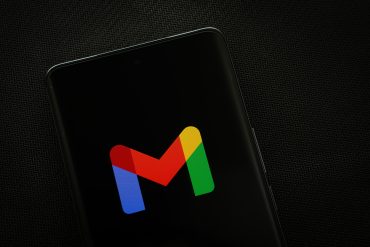
- Cybersecurity
Google Requires Passkey Login for 2.5B Gmail Users
6 minute read

Gmail security changes target rising cyber attacks as Google rolls out AI features to protect 2.5 billion users worldwide
Key Takeaways
- Google confirms Gmail attacks targeting users while rolling out mandatory passkey authentication as the default method for its 2.5 billion users, following a 33% surge in cyber attacks that cost $16 billion in damages last year.
- New AI-powered Gmail features raise privacy concerns as tools process user data on Google servers, with privacy advocates warning about unauthorized data sharing risks across inboxes and Google Drive.
- Stricter email authentication protocols take effect with hard deadlines for third-party apps and bulk senders, requiring compliance with enhanced spam thresholds to reduce unwanted messages.
Introduction
Google faces a critical juncture as it simultaneously combats sophisticated Gmail attacks while introducing AI-powered upgrades that spark privacy debates among its 2.5 billion users. The tech giant confirms that hackers are exploiting Google’s own infrastructure to bypass security measures and impersonate employees, prompting urgent security overhauls across the platform.
The timing proves particularly sensitive as Google pushes users toward passkey authentication while expanding AI integration throughout Gmail. These changes affect the world’s largest email service at a time when the FBI reports cyber attacks jumped 33% last year, costing businesses and individuals over $16 billion in damages.
Key Developments
Google’s security response centers on eliminating password-based authentication in favor of passkeys, which become the default method for new accounts. The company sets hard deadlines for third-party applications to comply with these authentication changes, forcing developers to adapt their integration methods.
The attacks themselves exploit sophisticated techniques, including fake login pages that mimic legitimate Gmail, banking, and delivery company websites. These fraudulent pages steal credentials before redirecting victims to authentic sites, creating the illusion that nothing occurred while compromising account security.
Simultaneously, Google introduces AI-powered features including smart email sorting, automated responses, and enhanced search capabilities. These tools process user data on Google’s servers rather than locally on devices, creating new privacy considerations for users who previously maintained greater control over their information.
Market Impact
The Gmail upgrades represent Google’s strategic response to intensifying competition from Microsoft and Apple in the productivity software market. With over 3 billion active Gmail users globally, Google leverages this massive user base to drive adoption of paid Google Workspace plans among businesses.
The platform experiences particularly strong growth in emerging markets like India and Indonesia, where mobile Gmail usage reaches exceptionally high levels. These regions become crucial for Google’s expansion strategy as it seeks to convert free users into paying customers through enhanced security and productivity features.
Industry compliance requirements drive significant changes for bulk email senders, who must now meet stricter spam thresholds and authentication protocols. Companies relying on email marketing face increased costs and technical requirements to maintain delivery rates to Gmail users.
Strategic Insights
Google’s dual approach of enhancing security while expanding AI capabilities creates both opportunities and challenges for the company. The mandatory authentication changes strengthen Gmail’s position as a secure email platform, particularly valuable for enterprise customers evaluating productivity suites.
However, the AI integration strategy puts Google at odds with privacy advocates who question the necessity of server-side data processing. Unlike competitors such as Apple, which emphasizes on-device processing, Google’s approach requires users to trust the company with sensitive email content.
The segmentation between business and consumer features allows Google to justify premium pricing for advanced security and AI capabilities. This strategy helps differentiate Google Workspace from free Gmail while creating clear upgrade paths for organizations requiring enhanced compliance features.
Expert Opinions and Data
Privacy research firm Incogni ranks Google’s Gemini AI among the most privacy-invasive platforms, trailing only Meta’s AI offerings. The organization warns that AI models embedded in workflows increase unauthorized data sharing risks faster than privacy assessments can evaluate potential vulnerabilities.
Industry analysts view Google’s strategy as necessary defense against competitive threats while positioning the company to capitalize on AI transformation in digital communication. The Forbes analysis emphasizes that users face critical decisions about privacy boundaries amid these technological shifts.
Security experts acknowledge the effectiveness of Google’s enhanced phishing protection, which uses machine learning to assess email senders and content for fraudulent schemes. The real-time account takeover protection and improved recovery processes add multiple security layers that address evolving threat landscapes.
Conclusion
Google’s Gmail transformation reflects broader industry tensions between enhanced functionality and user privacy. The company’s success depends on convincing users that improved security and AI capabilities justify potential privacy trade-offs while maintaining competitive advantages in the productivity software market.
The security upgrades address genuine threats facing email users, particularly as sophisticated attacks exploit trusted infrastructure and social engineering techniques. However, the AI integration raises fundamental questions about data processing transparency that Google must address to maintain user trust and regulatory compliance.





